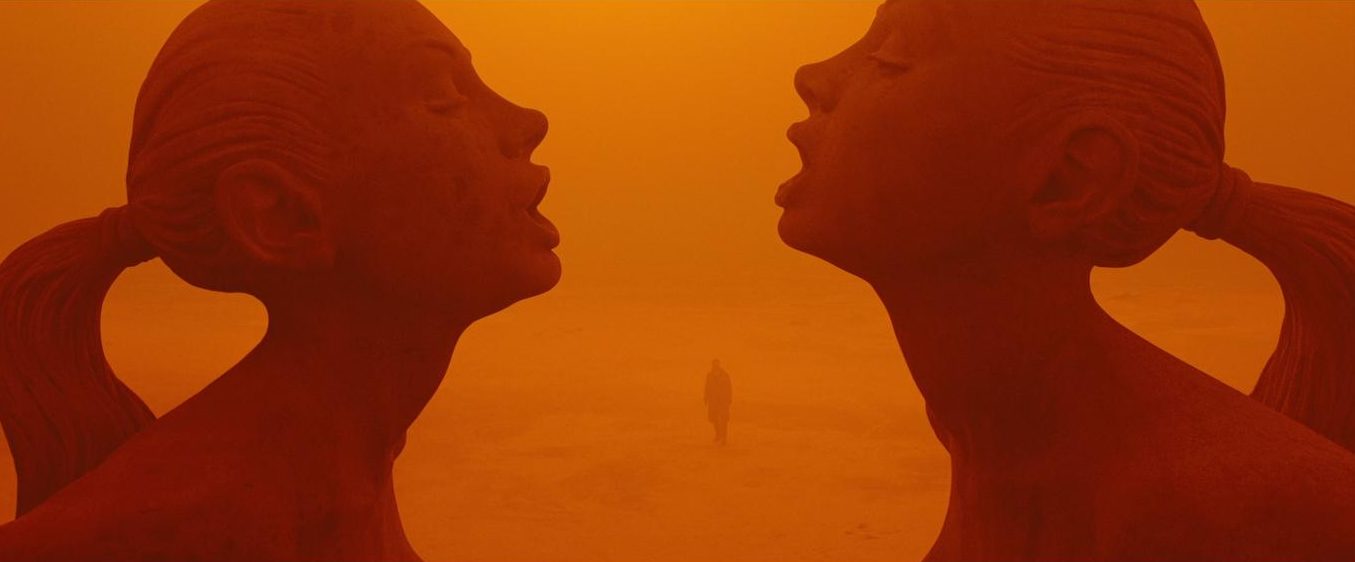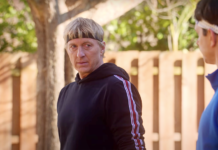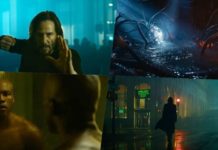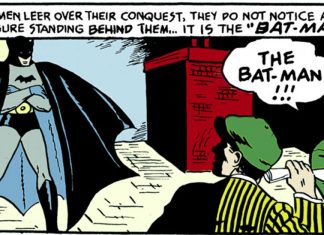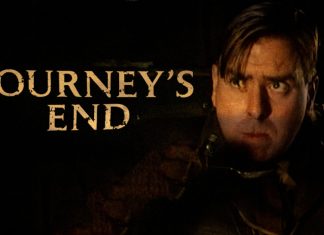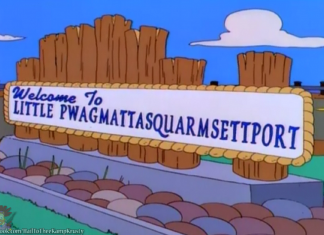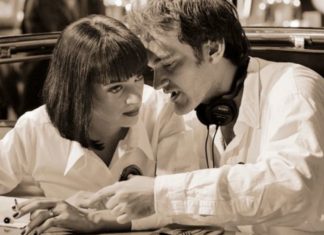I consider Blade Runner the defining movie of my life and certainly in terms of a movie-going experience, it’s the movie I compare all others to. For me, it was an epiphany, the absolute greatest cinema-watching moment of my life.
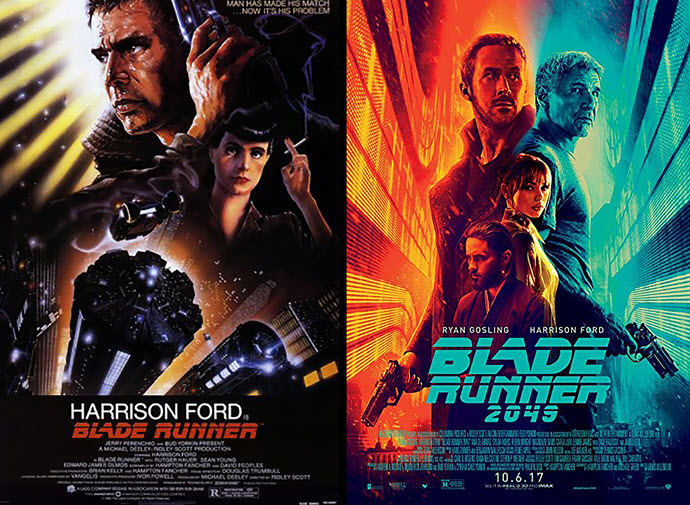
As a pre-teen sci-fi fan — one might use the word “NEERRRRD!!!” — growing up in the 70s on a steady diet of Star Trek, 2001, Westworld, Stepford Wives, Planet of the Apes, Logan’s Run, Star Wars, Alien, TV movies of Brave New World, Lathe of Heaven, Martian Chronicles, and on and on.
I’d grown accustomed to and was ready for visually spectacular, serious sci-fi and I think everything I’d seen prior to this masterpiece prepared me for what I was about to see.
You see, movies back then weren’t as mind-numbingly dumb as they are today. They were typically about something, even if I couldn’t articulate it.
I saw Blade Runner in a small town theater in the fall of 1982, and I could’ve sworn it was three minutes long. I sat there, mouth agape, completely mesmerized by the dazzling synthesis of light, sound, and ideas. I remember I felt like couldn’t breathe, all of the details of its dystopian future were so vivid and textured and mind-blowingly believable.
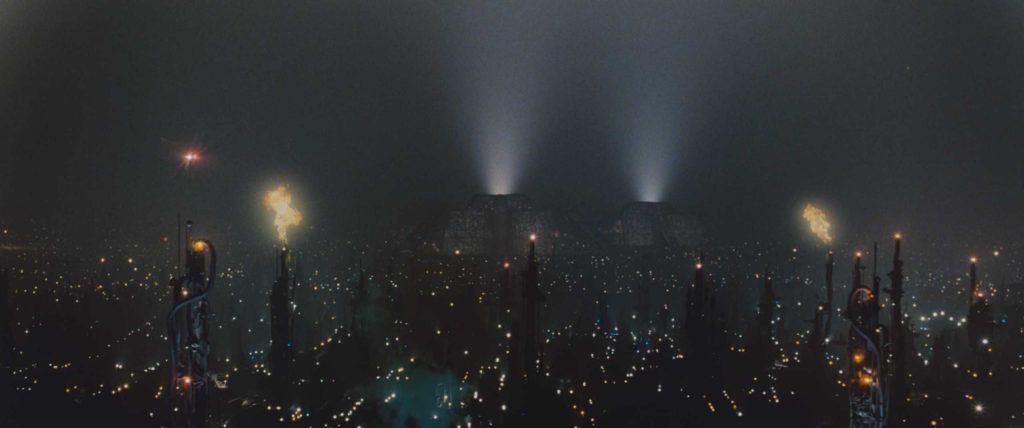
I still recall clearly the mix of wonder and melancholy I felt when there was a shot of a Police Spinner flying far in the distant past Tyrell’s office in front of a dying sun. The filmmakers had gone to the trouble of adding that much detail.
Like Star Wars before it, it took a familiar genre, mixed and matched, repurposed and revolutionized cinema into something bold and new and fresh.
It’s Ridley Scott’s magnum opus, his In Cold Blood. Whatever he’s done afterward has been consistent trifle IMHO. I assume he didn’t want the mantle of greatness. He settled for the dreams of avarice, the big lame-o.
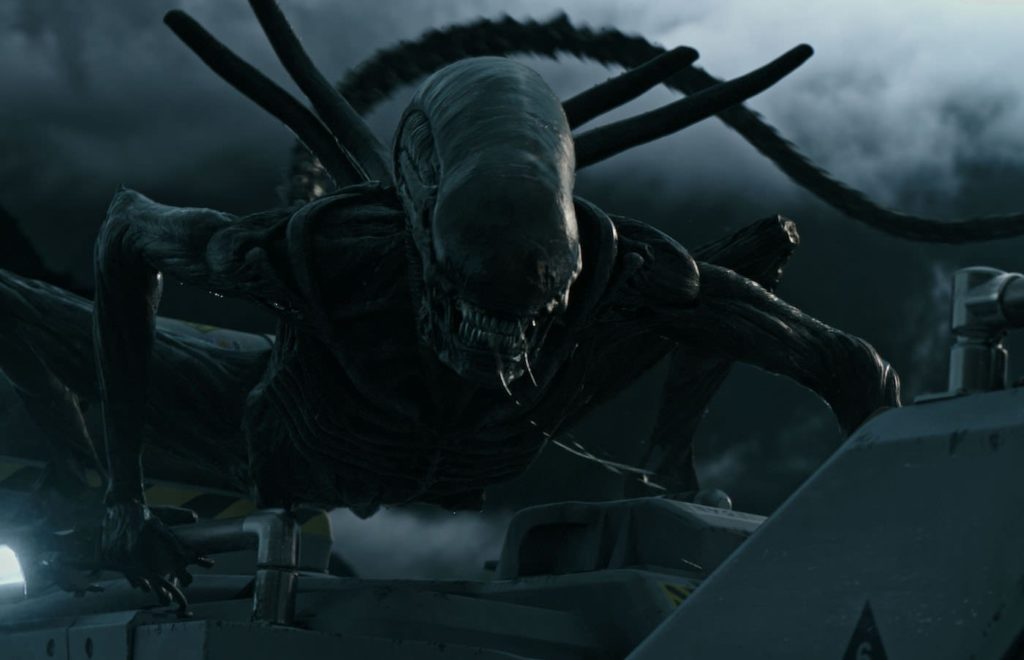
A good number of people I’ve met in life, when I told them my favorite all time movie is Blade Runner, have said to me that they thought it was “boring. “Or “depressing.” In rare cases, I’ve heard people say it was ”pointless” or “stupid.”
I used to be crushed or outraged by such declarations, but you get older and you go to these peoples’ homes and you see copies of Robin Williams’ Patch Adams on their DVD shelves or The Presidio with Sean Connery and Mark Harmon. And you recoil and exclaim, “PATCH ADAMS!!!????” or “The PRESIDIO!!!!? You bought that?!” And they say, “Yeah, isn’t that a great movie?” And what are you going to do?
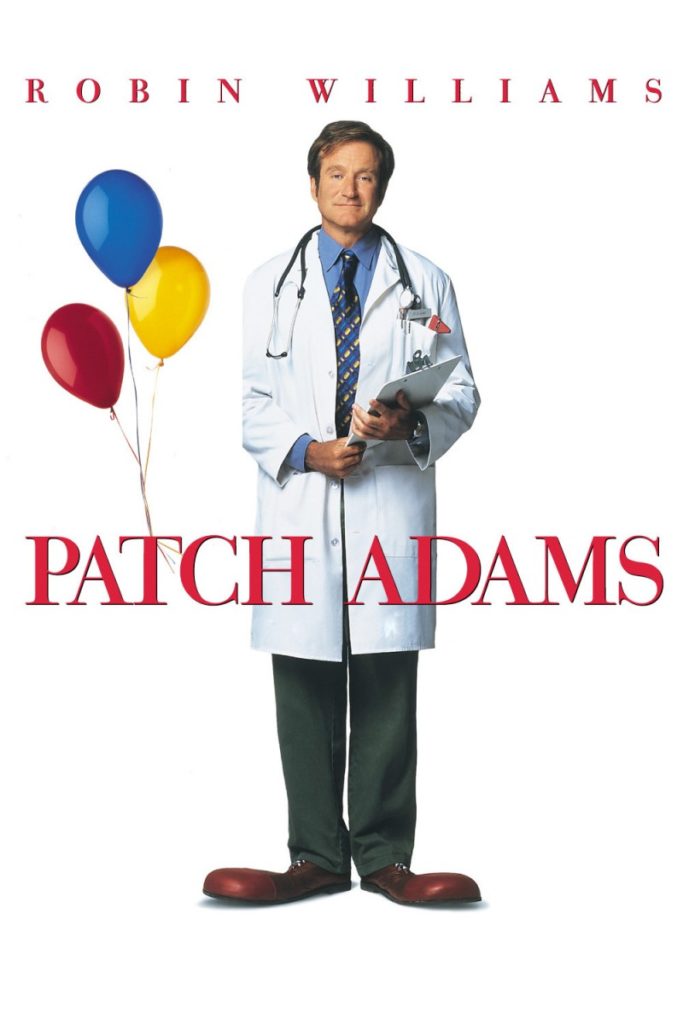
People love what they love.
Well, I love Blade Runner. I watch it at least once a year. Just to say hello to the gang: Deckard. Batty. Bryant. Rachel. Leon. Tyrell. Chew. Sebastian. Pris Zhora. Heck, even Holden and Taffy Lewis. Every one of the characters is memorable. Nearly all the dialogue is quotable. Nearly every scene a meditation on what it is to be human, to remember and to be alive. To hunt? Or be hunted? Who gets to decide the fate of humanity? Boring? I just can’t see it.
Now, of course, when I heard they were making a sequel, the first movie that sprung to mind was 2010: The Year We Make Contact. Not a bad movie. I saw it on my birthday in 1984. But I remember reading Richard Schickel’s capsule review in Time Magazine where he dismissed it as a “footnote of a movie.” And even then I had to agree. It was nowhere near 2001 in terms of awesomeness.
And it was wholly unnecessary. I bought my DVD copy of 2010 at Walmart for 3 bucks back when DVDs meant something.
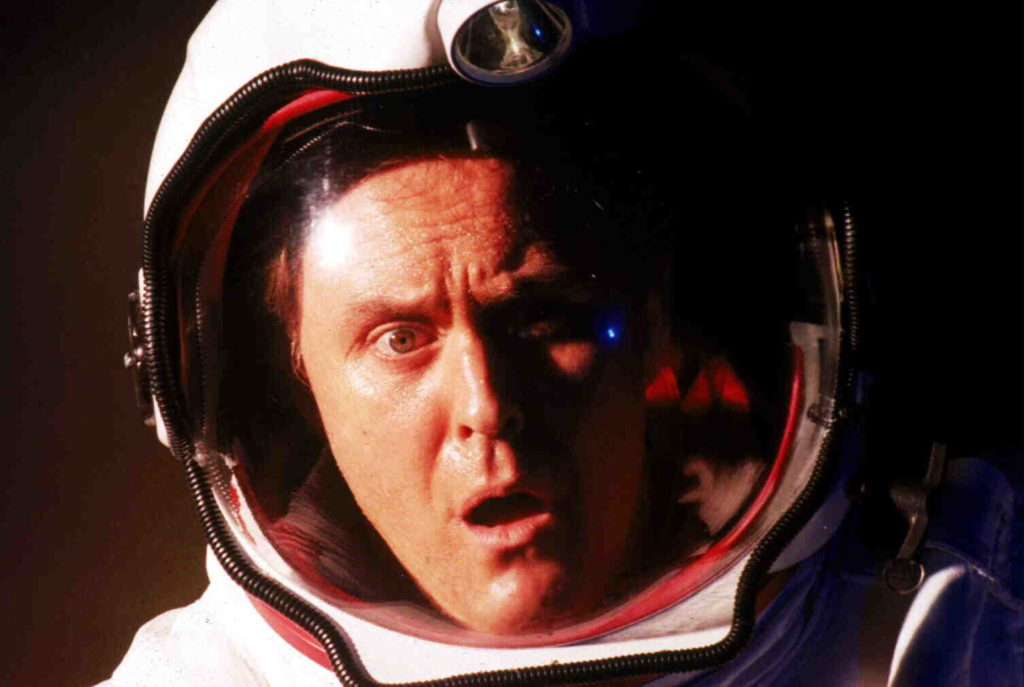
And that’s what we have with Blade Runner 2049. Usually, with my favorite series, like Star Trek, for example, I buy copies of the movies, even if I don’t like them. I disliked Star Trek IV long before it was acceptable. And yet, I still had the VHS and then the DVD and now the Blu Ray sitting on my shelf.
But Blade Runner 2049? I saw it once. Thought it was okay and then just had absolutely zero interest in seeing it again. Even to write this article I put off seeing the film again like I had to watch it for a college film class.
And why is that?
It’s a movie made with obvious care and love for the first film. It’s not an offensive beat-for-beat rehash in the Beverly Hills Cop II/The Force Awakens mode. It takes the story in a new direction. And it legitimately feels like it was set in the Blade Runner world.
Spoilers Ahead
When the film was released, I resisted reading reviews or pre-release hype –the only time I’ve done so since—I don’t know—1982? So I was pleased to have the story unfold for me the way the filmmakers intended. I didn’t know going in that Ryan Gosling was a replicant. Didn’t even know Sean Young was in the film and had a human/replicant hybrid baby. I liked that Ryan Gosling’s Officer K fancied himself important but turns out to be just an “average Joe.” It had some nice moments—particularly the opening scene and Gosling’s K being subjected to a bizarre emotional baseline test after each assignment. Roger Deakins’ cinematography was top notch. FX were flawless.
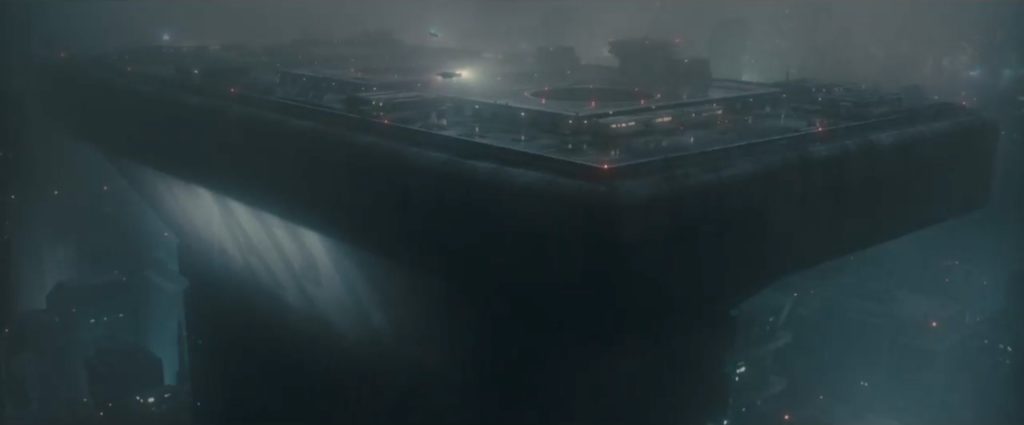
And yet… things jumped out as wrong. NOT Blade Runner. Like flashbacks. Replicant factions. Robin Wright. A.I. Girlfriends. Jared Leto and his 2nd-in-command bitch. Harrison Ford at his quivery-voiced, finger pointing worst. Hans Zimmer.
Mortal. Derivative. Dare I say it… Schlocky
I haven’t poured over the production details of 2049 as I did with its predecessor –when’s the time? Back in the day, after Blade Runner and Star Trek II ignited my passion for nerd cinema, I read heaps of Starlog articles about Blade Runner, bought the Marvel comic adaptation, (Al Williamson and Carlos Garzon, great art combo) read and re-read Do Androids Dream of Electric Sheep? and, in ’96, purchased Paul M. Sammon’s exhaustive Future Noir: The Making of Blade Runner— so this is pure speculation, but based on his limited filmography, I’m betting the screenwriter Hampton Fancher, who wrote the first BR script, had that AI partner program idea on his laptop for years before Her came out.
After all, the first scene in 2049 mirrors an early idea he had for the original Blade Runner script. It’s logical that he had this AI idea in mind for years while details of the sequel to Blade Runner were being hashed out.
But the fact is, Her did beat them to the punch. You can’t watch 2049 if you’ve seen Her and not feel disappointed that they were covering territory that had already been covered better. In the first Blade Runner, not one point or visual felt like a retread.
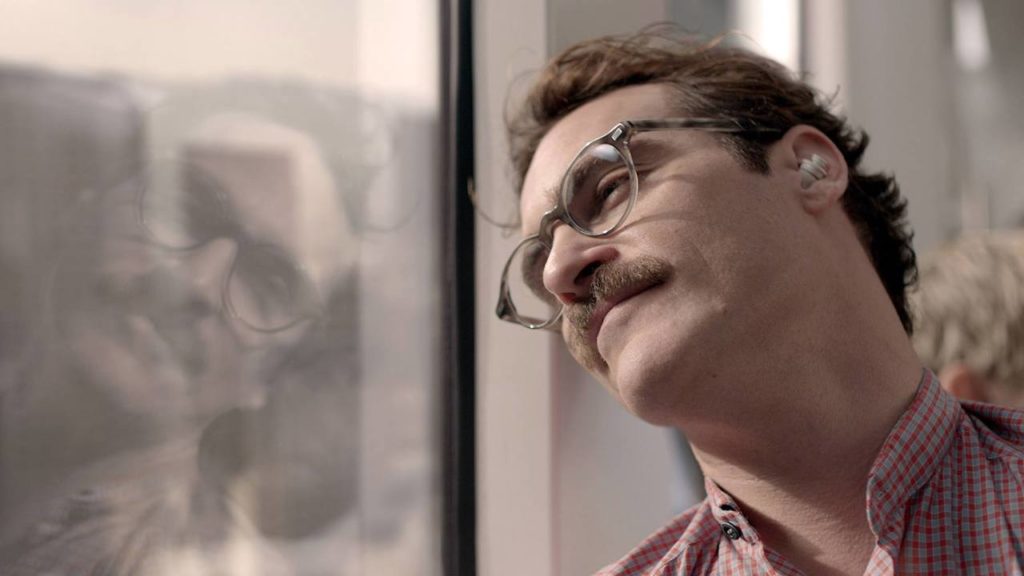
The Jared Leto Question
Compare Joe Turkel and Jared Leto.
I can’t stand Jared Leto on principle. This isn’t some fanboy Joker/Suicide Squad bandwagon hatred. I never got the love for Requiem For A Dream. The film said nothing to me. Leto was okay, I guess. I don’t remember much about that film except for Jennifer Connelly going ass-to-ass with a fellow stripper.
No, my distaste for him comes from Panic Room, a film I loathed due in large part to his over-the-top spazzy performance. Then after the Dallas Buyer’s Club Oscar win speech and “Hey! Guess what? Turns out he’s indeed a Hollywood douche bag!” followed by Suicide Squad’s crash and burn, I was looking forward to his presence in 2049 as much as one looks forward to cleaning vomit off a barroom floor.
Did he ruin the movie? Not entirely but he felt like an also-ran, a kid in a play, especially when compared with the natural, effortless power master’s arrogance that Joe Turkel brought to the part of Eldon Tyrell in the first film. Leto’s voice. His blindness. His pontificating. It all felt artificial. He was putting on a show.
Which leads me to…
The Women of 2049
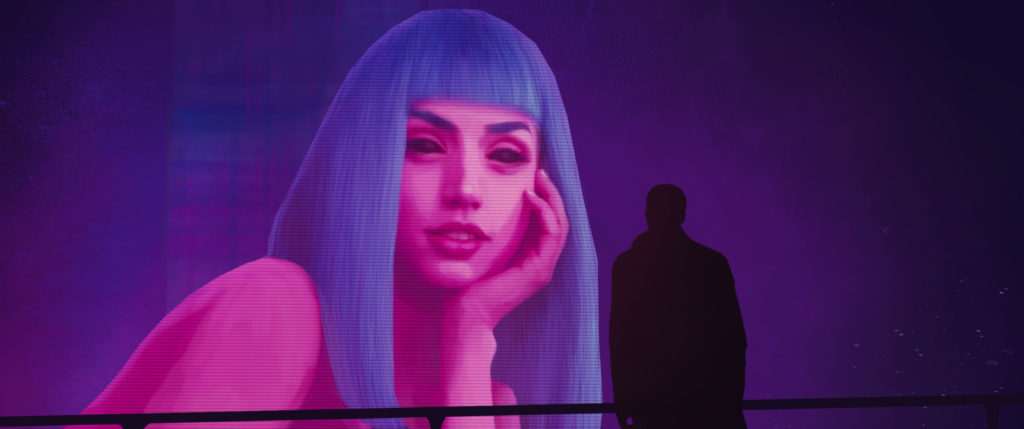 Sure, like most everyone here, I’m a scoffer when it comes to our society’s current definition of feminism. But even I picked up on a noticeable weakness in 2049’s female characters.
Sure, like most everyone here, I’m a scoffer when it comes to our society’s current definition of feminism. But even I picked up on a noticeable weakness in 2049’s female characters.
In Robin Wright and Sylvia Hoeks, there are two shining examples of an 80s staple, the 2-dimensional Hollywood stone cold ice bitches. And on the other end, there’s MacKenzie Davis and Ana De Armas playing… Hookers with Hearts of Gold. Okay, to be sure, when I look at Ana De Armas, I have to ask myself, “What am I complaining about?”
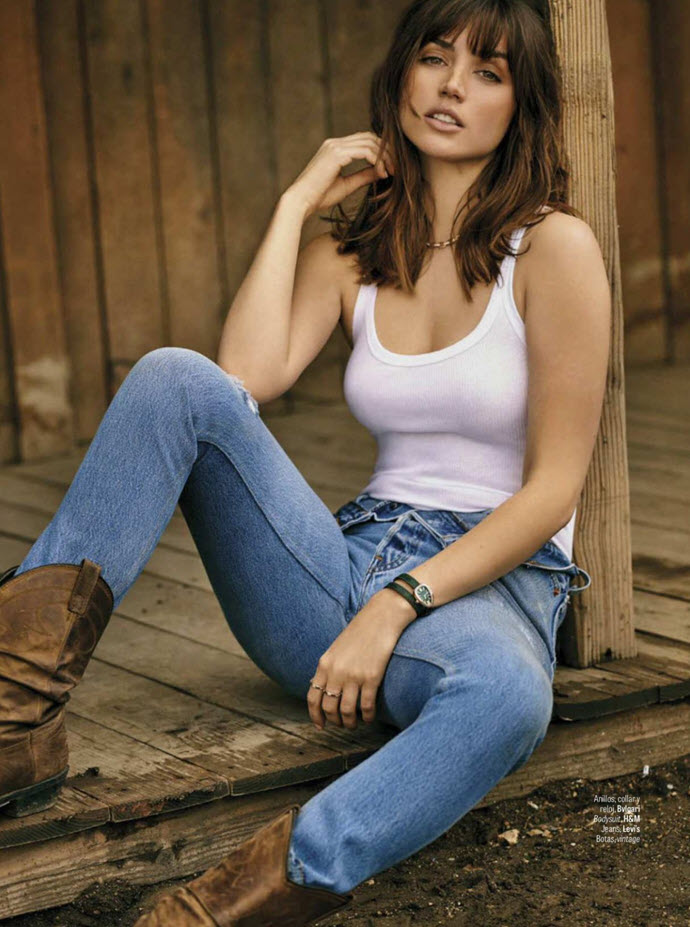
But compared to Daryl Hannah’s and Joanna Cassidy’s Pris and Zhora, they just come off as cardboard cutouts or worse, in the minds of today’s informed, culturally, gender-sensitive filmgoer: eye candy.
And yes, while Zhora was a stripper and Pris was an “off-world pleasure model”, the actresses never came off as anything but scary and desperate. Trying every tactic they could to cling to life. Daryl Hannah, in my mind, has never been better.
I do have to wonder if 2049 Director Denis Villeneuve just flat missed the point of the female “skin jobs” in the first film? Sex appeal was only vaguely part of their make-up. They both exuded a disturbing, off-kilter, “Don’t fuck with me!” vibe. Whereas the women of 2049 either seemed like they were posturing or flat-out helpless.
Where’s the progress? A near-40-year-old film had stronger female characters in it nearly 40 years ago? Yet reviewer after reviewer seemed to say that 2049 improved upon the first film. BAH-LONEY! And yes, I’m a grumpy old fart yelling, “See! Them old days wuz better!”
Olden Days Were Certainly Better For Harrison Ford
I’m not one to be an ageist, but Harrison Ford is tiresome now. He just is.
Did anyone buy him as Branch Rickey in ’42? His performance seemed straight out of a faith-based film — maybe even worse. Only Al Pacino or Robert DeNiro have surpassed him in terms of, “Are they even the same person?”
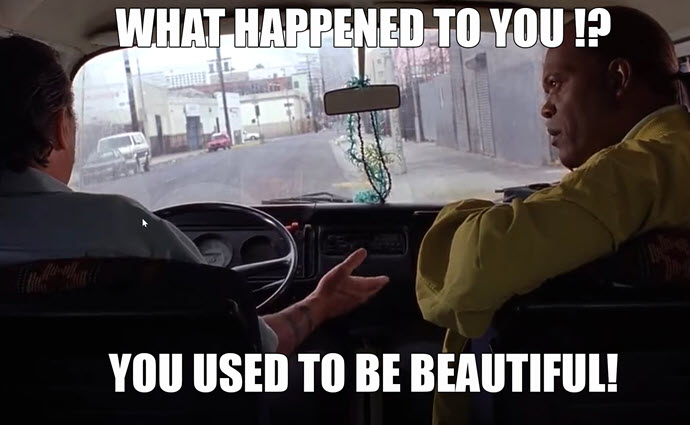
And it hurts to say this because Harrison Ford was the star of the ’80s. I idolized him like no other celebrity right until the Patriot Games Jack Ryan era. Before he started believing the hype and the “Truth Needs a Soldier” tagline. All those 80s and 90s interviews where the writers would say how real and down to earth Ford is. SOLID OAK.
That’s Harrison Ford in a nutshell.
Except It Isn’t
I think similarly to Ridley Scott, with Ford, his down-to-earth facade is all bullshit and he really craves money and being in the public eye, not great work.
My reasoning? After his amazing turn in Mosquito Coast, which was a box office flop, he seemed to retreat into safe financial bets. And then he retreated into Six Days and Seven Nights and a whole lot of thankless bullshit, ending up as second fiddle to Brendon Frasier! And whatever the reason, Ford has followed Al Pacino in old man acting traps.
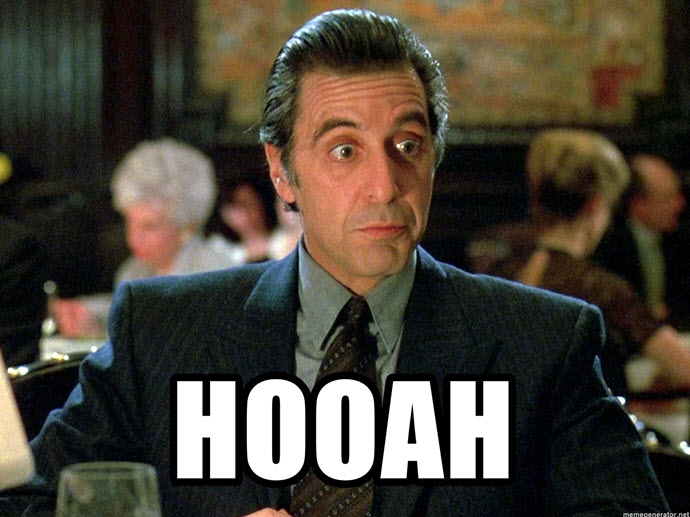
When Mr. Ford growls “We were being HUNTED!” my mind wandered to a point of fancy where I thought William Shatner might have made a better old Rick Deckard.
No, it’s not ageism on my part. A true acting icon, Paul Scofield, in his advanced years, nearly saved Robert Redford’s supremely mediocre Quiz Show and out-acted Daniel Day-Lewis in The Crucible. But with Harrison Ford, I’m watching a man grow old and tired and bored.
Where was Harrison Ford’s trademark smirk? Where was the jaded, aloof cop who popped his eyes open and said “It’s Eddie. An old friend of JF’s.” Or “Bad joke! I made a bad joke!” He came alive to a degree in The Force Awakens, as much as the script allowed him to, but in 2049, he was back in Jack Ryan/Branch Rickey “Truth needs a finger pointer” mode.
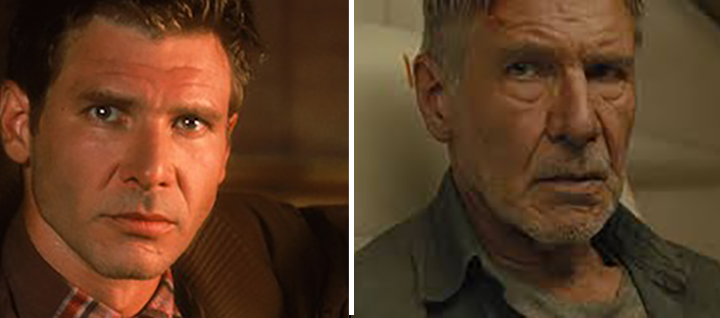
It didn’t help that Deckard was saddled as a helpless reactive ninny for much of his portion of the film, most notably in the final showdown — a fight that had all the originality of a lackluster, made-for-Cinemax cheapie.
“Crap! The water is rising! The water IS RISING!!!” Talk about an old gag with whiskers.
You could argue that in the original, Deckard just reacts and gets the shit kicked out of him. But there’s an important distinction: Deckard’s last act before accepting death was to spit at Roy Batty, an act that Roy recognizes as his own defiance in the face of death. It’s an act of defiance that defines Deckard. In 2049, it’s nowhere to be found.
Again, compare and contrast to the original: Where’s that Blade Runner magic?
Monologuing vs. Flashbacks
Speaking of defiance, does anyone remember when Live Free Or Die Hard was coming out and Bruce Willis went onto AICN at Sly Stallone’s urging and had a talkback with a portion of rabid, angry fans? Mr. Willis kept backing up that hack director Len Weisman because in Bruce’s words Weisman understood “Die Hard mythology?” (I think that meant hero and villain must talk to each other via walkie–talkies, the only detail from the original that Live Free referred back to. According to my Die Hard mythology, John McClane always has a receding hairline and is not cue-ball bald. That’s the first time I recall hearing that a set of motion pictures had its own “mythology.”
I think it’s a stupid term but I’ll use it here, under protest.
In my mind “Blade Runner’s mythology” means NO FREAKIN’ FLASHBACKS. All the iconic, heartbreaking scenes from the first Blade Runner are told via monologue.
Observe:
And while one could say that the flashbacks in 2049 are a mindfuck, I don’t buy it in terms of a storytelling convention. Here’s how the original handled such gaslighting:
In simple terms, the narrative approach to the sequel is sloppy, breaks convention, and frankly, was boring. On the second viewing, I skipped right past that flashback.
And you know what’s really boring? PLOT.
2049 gets mired in its plot. Here’s a secret: TOO MUCH PLOT SUCKS.
Now, of course, I didn’t clamor for the same story as the original just rehashed. And to the sequel’s credit, I liked Ryan Gosling’s story arc, believing that his worthless life amounted to something, finding out it didn’t and then choosing to make it count anyway. That’s cool enough. And I did like the idea that Rachel had a child. I did not like that the same child grew up in a Replicant faction and was kept a secret as a chosen one. And kept in a bubble?? Ugh. There were so many ways the plot could go and 2049 chose the least interesting one.
Replicant Factions!
When that idea was introduced, again I thought immediately of 80s straight-to-video sci-fi fare featuring women carrying spears and wearing football shoulder pads guarding the star — usually played by the likes of Marc Singer or Tim Thomerson.
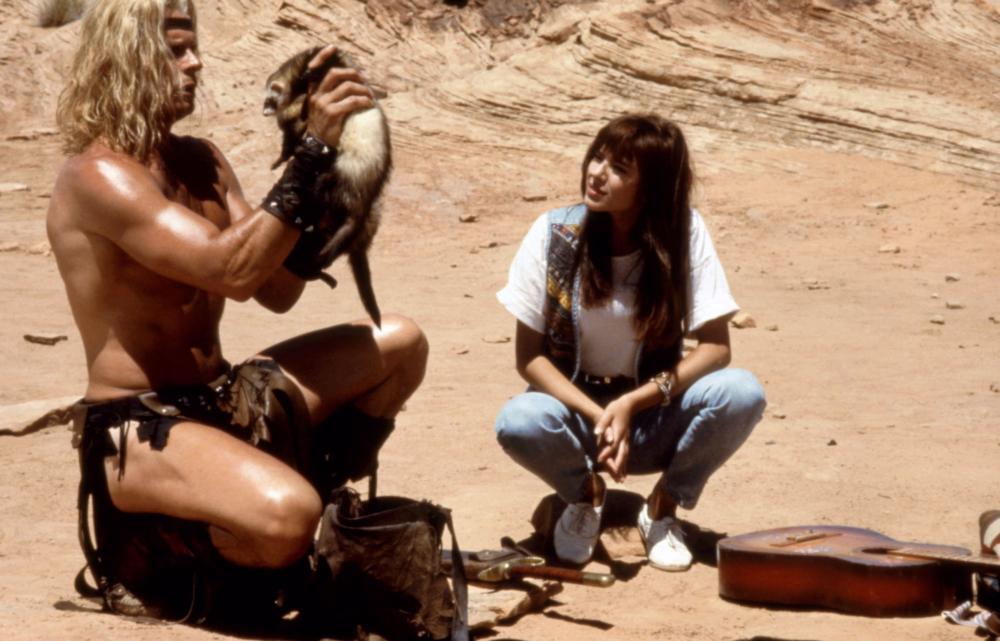
That’s NOT Blade Runner. Blade Runner to me is about loners, people all alone scraping by in a sea of nameless faces. Scufflers. Finding hope in hopelessness.
Factions turn all that on its ear and so begins the pilot for a forgettable anime TV show. Bring on the shoulder pads!
And lo’ all this to reiterate the main point: Blade Runner is an enduring classic filled with magic and pain and the thrill of filmmaking at its finest.
Blade Runner 2049 is okay, the last vestiges of its hard copy home viewing media to be found at a Big Lots for $2 sometime soon.
It’s certainly worth that.
What do you think?
Blues Hammer – a full-time dreamer, like my father before me.

